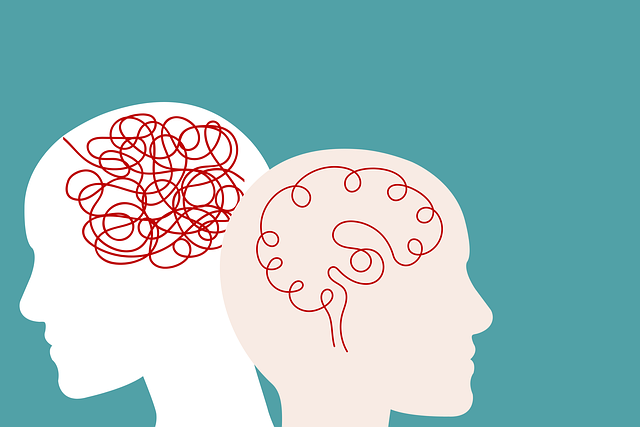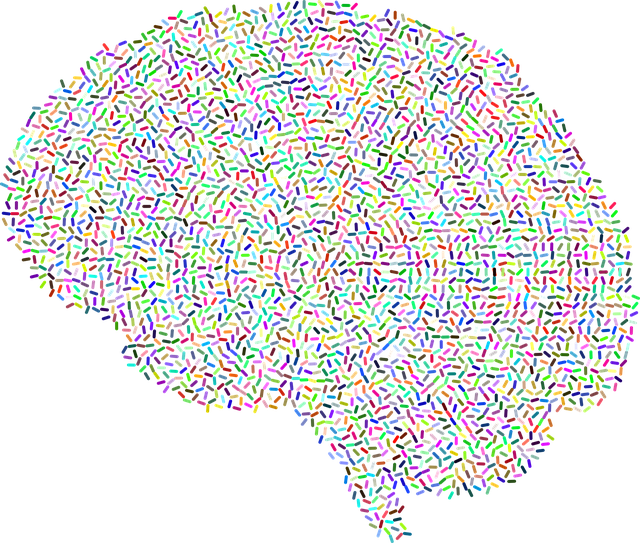Denver Functional Neurological Disorder (DFND) Therapy offers a comprehensive solution for managing persistent anxiety by addressing brain function and neural pathways using advanced neurofeedback, cognitive training, and mindfulness practices. Combining evidence-based techniques like CBT with lifestyle modifications such as exercise, nutrition, and social engagement, DFND empowers individuals to effectively manage anxiety in the short and long term, improving their overall well-being. This holistic approach, incorporating mindfulness, relaxation, and community outreach programs, provides a promising path towards enhanced quality of life for those living with functional neurological disorders in Denver and beyond.
Anxiety is a common challenge, affecting millions worldwide. This article explores effective management techniques to empower individuals in navigating their anxiety. From understanding its profound impact to exploring innovative therapies like Denver Functional Neurological Disorder Therapy, we delve into actionable strategies. Cognitive Behavioral Therapy (CBT) and mindfulness practices are spotlighted as powerful tools for mental wellness. Additionally, lifestyle changes are discussed to foster a healthier, more balanced approach to life.
- Understanding Anxiety and Its Impact
- Denver Functional Neurological Disorder Therapy: An Overview
- Cognitive Behavioral Therapy (CBT): A Powerful Tool
- Mindfulness and Relaxation Techniques
- Lifestyle Changes for Better Mental Health
Understanding Anxiety and Its Impact

Anxiety is a natural response to stress or perceived threats, but when it becomes persistent and overwhelming, it can significantly impact daily life. It’s essential to understand that anxiety disorders are more than just feeling nervous or worried; they are characterized by intense, excessive, and persistent fear or concern that interferes with an individual’s ability to function normally. This can manifest in various forms, such as panic attacks, social anxiety, or generalized anxiety disorder. The impact of chronic anxiety includes physical symptoms like increased heart rate, insomnia, fatigue, and even muscle tension, affecting overall well-being.
In Denver, functional neurological disorder therapy offers a comprehensive approach to managing anxiety. This type of therapy focuses on identifying and modifying negative thought patterns and behaviors associated with anxiety. By combining techniques such as positive thinking exercises, social skills training, and self-awareness practices, individuals can learn coping strategies to reduce anxiety’s hold on their lives. These methods not only help in the short term but also empower people to manage stress effectively in the long term.
Denver Functional Neurological Disorder Therapy: An Overview

Denver Functional Neurological Disorder (DFND) Therapy offers a unique and holistic approach to managing anxiety disorders. This therapeutic method focuses on addressing the underlying causes of anxiety by examining brain function and neural pathways. By targeting specific areas of the brain associated with fear responses, DFND aims to help individuals gain control over their anxious thoughts and behaviors. The process involves advanced neurofeedback techniques, personalized cognitive training, and mindfulness practices tailored to each patient’s needs.
Through this comprehensive approach, Denver Functional Neurological Disorder Therapy not only provides tools for managing anxiety in the present but also fosters resilience building. By participating in a supportive community outreach program implementation, patients can enhance their mental wellness and develop strategies to cope with future challenges. This form of therapy empowers individuals to take charge of their mental health and lead fulfilling lives despite the presence of anxiety disorders.
Cognitive Behavioral Therapy (CBT): A Powerful Tool

Cognitive Behavioral Therapy (CBT) has emerged as a powerful tool in managing anxiety disorders, including those with Denver functional neurological disorder symptoms. This evidence-based approach focuses on identifying and changing negative thought patterns and behaviors that contribute to anxious feelings. By challenging distorted thinking and replacing it with more realistic and positive thoughts, CBT empowers individuals to cope better with stressful situations.
Through various techniques like relaxation exercises, mindfulness training, and social skills training, CBT helps patients develop effective stress management strategies. It teaches them to recognize and modify unhelpful behaviors, leading to improved emotional well-being. This tailored approach has shown significant benefits for many, offering a promising path towards overcoming anxiety and enhancing overall quality of life for those living with functional neurological disorders in Denver or beyond.
Mindfulness and Relaxation Techniques

Mindfulness and relaxation techniques have proven to be powerful tools for managing anxiety. These practices encourage individuals to focus on the present moment, rather than dwelling on past events or future worries, a key aspect in addressing anxiety disorders. Denver functional neurological disorder therapy often incorporates mindfulness as a core component, helping clients develop a deeper sense of self-awareness and emotional regulation.
Techniques such as deep breathing exercises, progressive muscle relaxation, and guided imagery can significantly reduce symptoms of anxiety by calming the body’s physical response to stress. Additionally, these methods foster self-esteem improvement and support emotional healing processes, allowing individuals to better cope with challenging situations. By integrating mindfulness into daily routines, people can enhance their overall well-being and cultivate a more balanced and peaceful mindset.
Lifestyle Changes for Better Mental Health

Making lifestyle changes can significantly contribute to managing anxiety and improving mental health. This involves adopting healthy habits such as regular exercise, a balanced diet, and adequate sleep. Physical activity releases endorphins, which are natural mood lifters, while a nutritious diet fuels your brain and body optimally. Adequate rest is crucial for emotional regulation and cognitive function. Additionally, incorporating stress management techniques like mindfulness meditation and deep breathing exercises can help individuals cultivate mental resilience. These practices, often emphasized in Denver Functional Neurological Disorder Therapy, promote a strong mind-body connection, enabling better control over anxiety responses.
Beyond these, fostering social connections and engaging in activities that bring joy are essential. Building a supportive network of friends and family provides a sense of belonging and reduces feelings of isolation. Pursuing hobbies or creative outlets can also offer an outlet for stress relief and self-expression. Combining these lifestyle changes with the mind over matter principles and compassion cultivation practices can create a holistic approach to anxiety management, enhancing overall mental health awareness and well-being.
Anxiety management is a comprehensive journey, encompassing various techniques tailored to individual needs. From understanding the impact of anxiety and exploring therapies like Cognitive Behavioral Therapy (CBT) to adopting mindfulness practices and lifestyle changes, there’s a holistic approach available. For those in Denver seeking specialized support, Denver Functional Neurological Disorder Therapy offers innovative solutions. By combining these strategies, individuals can effectively navigate their anxiety, reclaim their lives, and foster better mental health.














